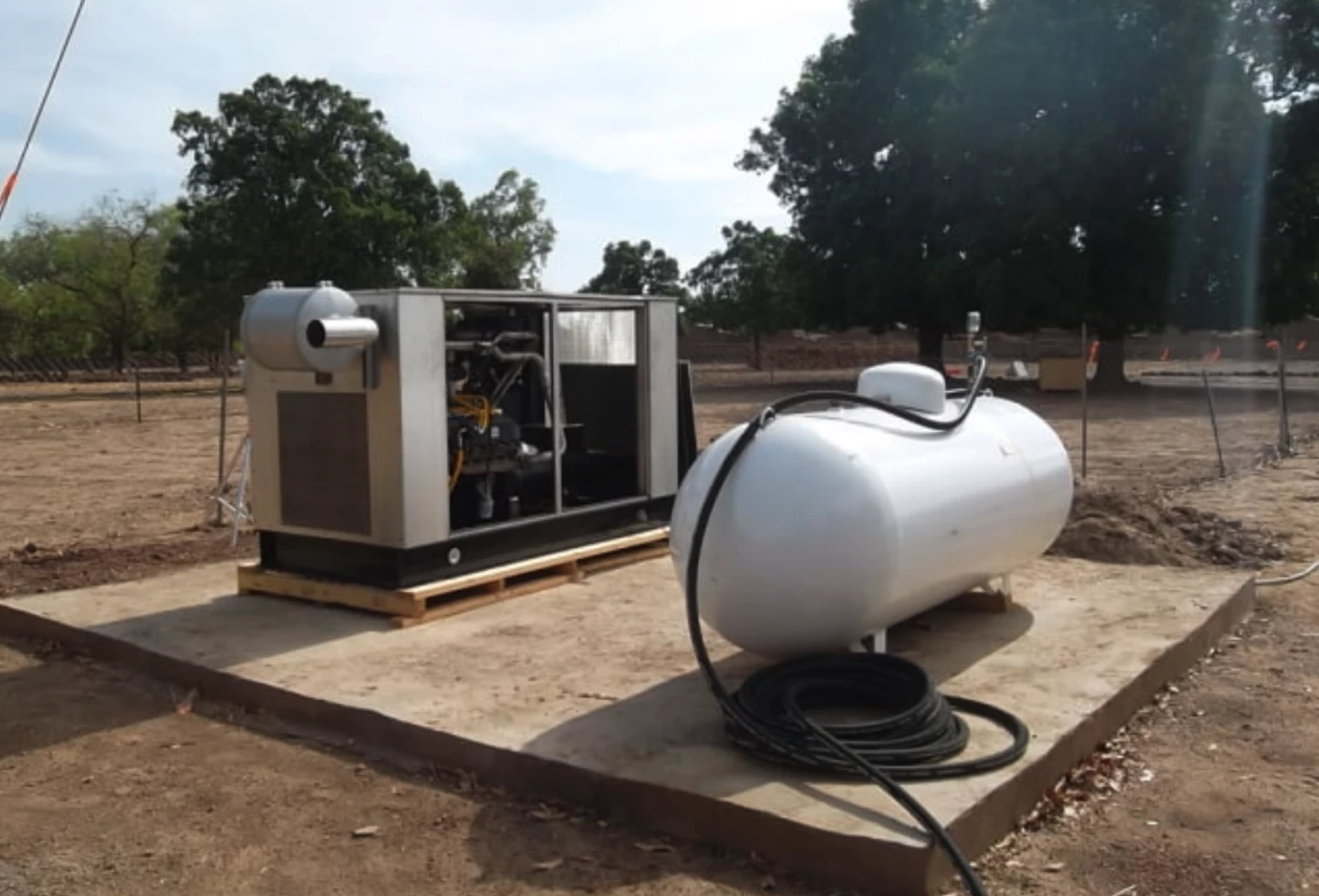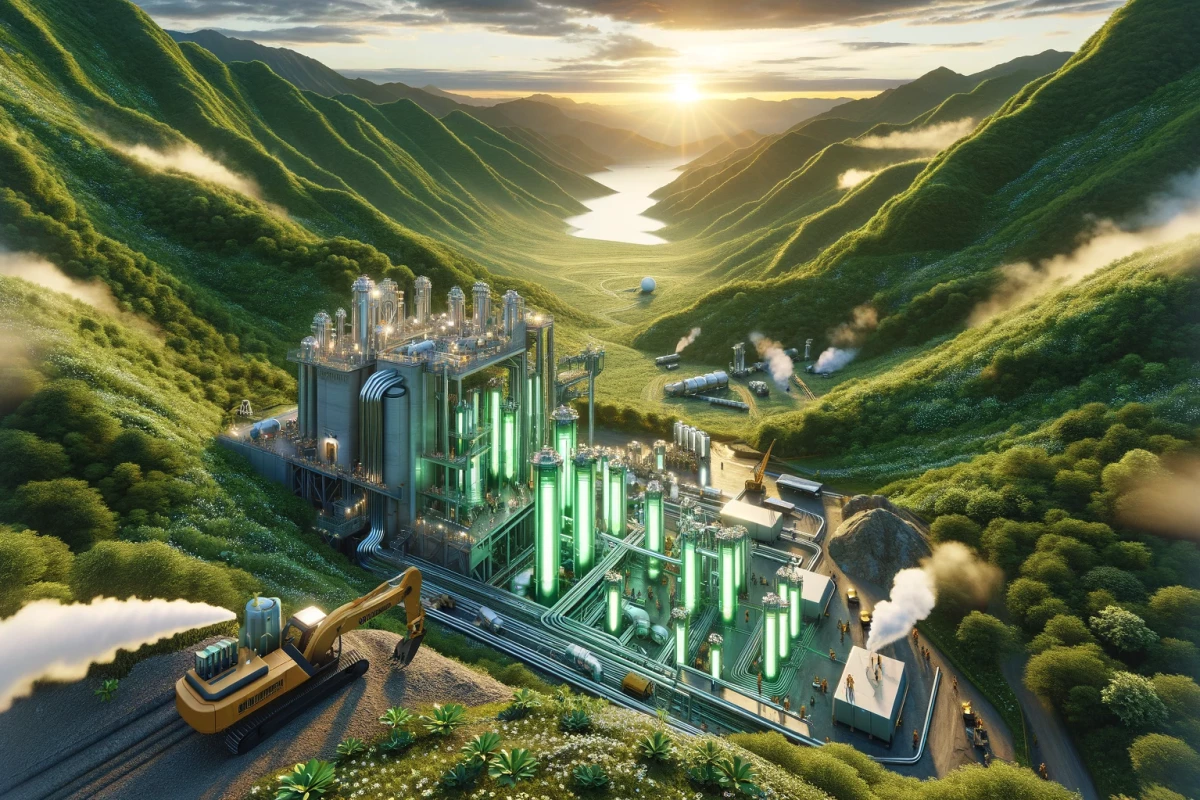There's enough natural hydrogen trapped underground to meet all projected demands for hundreds of years. An unpublished report by the US Geological Survey identifies it as a new primary resource, and fires the starter pistol on a new gold rush.
The "black gold" oil rush in the US started in 1859, when one Edwin Drake drove a stake into the Pennsylvania soil and oil started flowing out. The gold hydrogen rush may have a similar moment to point back to; in 1987, as one Mamadou Ngulo Konaré tells the story, well diggers gave up on a 108-m (354-ft) deep dry borehole, but he and other villagers in Bourakébougou, Mali, noticed that wind was blowing out of it. When one of the drillers looked in, smoking a cigarette, it blew up in his face, causing severe burns as well as a huge fire.
That fire, as Science quoted Konaré, burned "like blue sparking water, and did not have black smoke pollution. The color of the fire at night was like shining gold." It took weeks to put the fire out and plug the hole, but subsequent analysis showed the gas coming out was 98% pure hydrogen. Celebratory mangos were served. Some years later, a little 30 kW Ford generator was hooked up, and Bourakébougou became the first village in the world to enjoy the benefits of clean, naturally occuring hydrogen as a green energy source.

We've spent so much time over the last several years covering new ways to generate green hydrogen using renewable energy – it's a highly promising clean fuel with all sorts of applications. Stored as a cryogenic liquid or a pressurized gas, it can be burned as a hydrocarbon fuel replacement with relatively minor modifications to normal combustion engines. It can also be run through a fuel cell to generate electricity, acting like a liquid/gaseous battery of sorts.
But in general, to produce it, you need lots of fresh water – about 9 l (2 gallons) of water for every 1 kilogram (2.2 lb) of hydrogen you produce. And the electrolysis process, while improving, is still lossy. So every time you divert precious renewable energy away from the grid to produce hydrogen, you're throwing some percentage away. That does feel a little wasteful given the massively growing power demands that power grids worldwide need to satisfy while also getting rid of the cheap, easy, dirty energy sources of the past.
Hydrogen is such a pain to store at atmospheric pressures that perhaps the idea of geologic hydrogen, trapped in the rocks under our feet like natural gas, hasn't crossed people's minds; perhaps it was assumed that naturally occurring hydrogen molecules would wriggle their way through solid rock to escape into the atmosphere, as they sometimes do in storage containers, or that they'd been consumed by microbes. Perhaps it was simply never seen as that valuable a resource until the relatively recent pivot toward clean transport, clean energy and zero carbon emissions by 2050.
Either way, the situation has now changed, big time. Geoffrey Ellis, of the US Geological Survey, has been investigating the global potential of geo-locked "gold" hydrogen as a new primary resource. In a Denver meeting of the American Association for the Advancement of Science, he previewed the results of an as-yet unpublished study, according to the Financial Times.
In short, there are as many as 5.5 trillion tons of hydrogen in underground reservoirs worldwide. It may have ben generated by the interaction of certain iron-rich minerals with subterranean water. In some cases, it may be mixed in with other gases such as methane, from which it would need to be separated. But it's there, in such extraordinary quantities that analysts are expecting a gold hydrogen rush at a global scale.
It may not be super easy to get to: "Most hydrogen is likely inaccessible," Ellis told the Financial Times. "But a few per cent recovery would still supply all projected demand – 500 million tonnes a year – for hundreds of years."
Gold hydrogen won't won't hog renewable energy like electrolyzers, or divert it away from other decarbonization opportunities. In that sense, you could argue it'll have the potential to be significantly greener than green hydrogen. On the other hand, if tapping it releases methane into the atmosphere, that's a serious issue; methane is around 85 times more powerful a greenhouse gas than carbon dioxide over a 20-year time frame.
Resources companies haven't been looking for hydrogen for long, so they're only just beginning to find it and work out how to cleanly and efficiently extract it. But the opportunities here are absolutely immense, and already attracting serious investment. Over the coming months and years, we'd expect to hear plenty more about the technology and techniques involved.
Source: Financial Times






